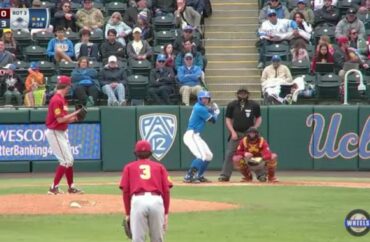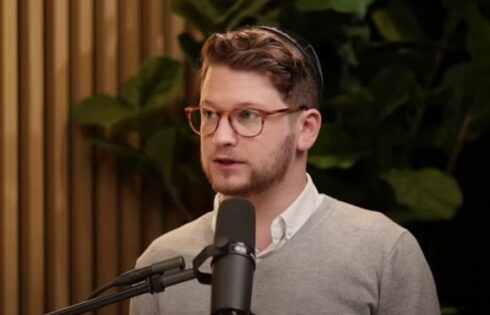
ANALYSIS: UCLA’s travel may have fallen within the letter of the law, but not the spirit of it
The University of California Los Angeles spent over $150,000 traveling to Republican-led states that were on the attorney general’s no-travel list.
Documents obtained by The College Fix via a public records request shows the university’s athletics department spent at least $150,800.10 in the last school year traveling to competition in forbidden states.
The amount identified by The Fix spent only includes funds spent directly on flights or driving. It does not include money spent on food or entertainment, for example.
The law, AB 1887, has since been repealed. It prohibited travel to states that did not have, in the eyes of the attorney general, sufficient protections for gay and transgender people. An example would be a law that requires males use bathrooms for men and prohibits them from using female bathrooms.
Governor Gavin Newsom signed Senate Bill 447 which repealed the prohibitions and “create[d] a new public awareness project that will consult with community leaders to promote California’s values of acceptance and inclusion of the LGBTQ+ community across the country,” according to a news release from his office.
Governor Newsom’s press team declined to answer College Fix questions on if the law had ever been enforced and instead deferred to the attorney general’s office, which also declined to provide substantial comment.
Governor Jerry Brown, Newsom’s predecessor, signed the travel law in September 2016.
AB 1887 “prohibits the use of state funds to pay for travel to a state on the Attorney General’s list” but “does not affect travel that is paid for or reimbursed using non-state funds,” according to guidance posted on the University of California San Diego’s website.
“Alternative funding sources may include University Core Fund 13991 and Campus Core Fund 13992,” the guidance stated.
Questions remained about how a university could separate its spending and how to comply with the law. Gov. Newsom himself traveled to Montana for a private vacation, but brought along taxpayer-funded security.
The repeal is convenient for UCLA, which is set to join the Big Ten Conference, home to four universities in states on the blacklist – Indiana University, Purdue University (Indiana), the University of Iowa, and The Ohio State University.
But prior to the law’s repeal, UCLA spent money going to these states, violating at least the spirit of the law. “As some state legislatures around the country choose to target and harm LGBT people and their families, it is imperative that California denounce those actions publicly and financially,” Equality California stated in support of the law in 2016.
Money still flowed to red states.
The men’s golf team spent $1,937.16 on flights to Arizona in September 2022 for a tournament. The golf team spent another $6,836.76 to play in Arkansas in October 2022.
Larger teams, like baseball, spent more money traveling to states on the blacklist, including $33,241.59 on flights to Nashville, Tennessee in February 2022 and $10,814.38 on a luxury bus to Arizona in May 2022.
MORE: Two protesters detained during Riley Gaines event
The beach volleyball team spent $26,000 in March and May of last year to travel to Alabama for tournaments, the records show.
The College Fix identified at least six trips the track and field program took to states on the no-travel list in 2022, including $19,712.52 spent to travel to Texas at the end of March and $17,208.22 to travel to Arizona in April.
Gymnastics also spent nearly $30,000 traveling to Utah and Arizona last year.
All the states traveled to were on the prohibited list as of January 2022, according to an archive of the attorney general’s website.
The university says that the funds for these trips comes from “department generated revenue, including from ticket sales, sponsorships, conference television distributions, etc., to fund the trips for the student athletes and teams to compete in sporting events,” in response to a College Fix request for information on the source of the funds.
“Should UCLA compete or recruit in a banned state, in compliance with the law, none of the costs for travel to that state will come from state funds,” a spokesman told The Fix in January.
Those answers don’t capture the whole picture.
The coaches who travel with the teams are presumably paid out of state funds, as are the athletic trainers, tutors and other support staff that might go with the team. Furthermore, the spirit of the law was meant to punish states that passed laws against the LGBT agenda.
UCLA’s media representatives did not respond to two requests for comment sent in the past month that asked about traveling to conservative states in light of the law.
The state’s attorney general office said it could not comment on enforcement of the law.
“Suggest you reach out to the UC Office of the President with regard to your inquiry,” an unsigned press email stated on Oct. 5. The Fix asked for clarification on its question about if the statute had ever been enforced and why the AG’s office could not answer that question in its capacity as the chief law enforcement officer of the state.
“Under AB 1887, our role was to develop, maintain, and post on our website a current list of states that are subject to the restrictions,” the media team stated in response. “It was ultimately up to each California agency, including universities, to make determinations about the steps required or taken to comply with AB 1887. The UC Office of the President may also have information about particular cases and enumerated exceptions to the law.”
MORE: Villanova’s ‘Inclusion Week’ features ‘Queer Spin Class’
IMAGE: Wheels/YouTube
Like The College Fix on Facebook / Follow us on Twitter






Please join the conversation about our stories on Facebook, Twitter, Instagram, Reddit, MeWe, Rumble, Gab, Minds and Gettr.